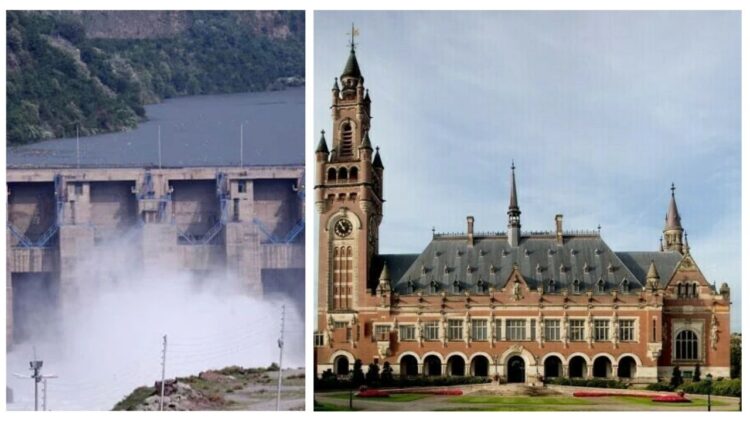ISLAMABAD; The federal government on Monday welcomed the decision of the Permanent Court of Arbitration (PCA) in The Hague to issue an “Award on Issues of General Interpretation of the Indus Waters Treaty (IWT).” The award states that India must generally allow the waters of the western rivers to flow freely for Pakistan’s unrestricted use.
The dispute dates back to April, when India suspended the IWT following a deadly attack in occupied Kashmir’s Pahalgam that killed 26 people—an incident New Delhi blamed on Pakistan without providing evidence.
Pakistan condemned India’s unilateral move as an “act of war,” emphasizing that the treaty contains no provision allowing one party to suspend it. Pakistan also considered taking legal action, citing violations of the 1969 Vienna Convention on the Law of Treaties.
In June, a supplemental PCA award ruled that India could not unilaterally hold the treaty in abeyance. India rejected the court’s authority and its decisions.
According to a press release from the PCA, the latest award was rendered on August 8 in an arbitration initiated by Pakistan on August 19, 2016, under Article IX and Annexure G of the IWT. The arbitration concerns the interpretation and application of the treaty regarding certain design elements of run-of-river hydroelectric plants that India is permitted to build on tributaries of the Indus, Jhelum, and Chenab Rivers.
The award clarifies that, as a general rule, India must “let flow” the waters of the western rivers for Pakistan’s unrestricted use. While some exceptions exist, such as for hydroelectric power generation, these exceptions must be strictly interpreted. The design and operation of run-of-river plants must comply rigorously with treaty requirements, not merely with India’s preferred “ideal” or “best practices.”
The court emphasized that disputes over the balance of rights and obligations should be resolved through the treaty’s established procedures for notification, objection, and dispute resolution, aimed at fostering mutual cooperation.
The PCA noted that India did not participate in the arbitration proceedings and repeatedly challenged the court’s jurisdiction. Despite this, the court ensured India was fully informed and kept the door open for its participation. The court also considered India’s views based on available materials, including previous correspondence and submissions under the treaty.
To verify Pakistan’s claims, the PCA requested additional written submissions, questioned Pakistan before and during hearings, asked for historical evidence on treaty operations, and reviewed publicly available documents and legal precedents.
The award also addressed the legal effect of decisions issued by dispute resolution bodies under the treaty, such as courts of arbitration and neutral experts. It declared that such awards are binding and final, without the possibility of appeal.
Pakistan’s Foreign Office welcomed the award, highlighting its significance following India’s recent unilateral suspension of the treaty and its boycott of arbitration proceedings. Pakistan reaffirmed its commitment to fully implement the IWT and urged India to resume the treaty’s normal functioning and abide by the PCA’s award immediately.
Key findings of the award include:
- Arbitration awards are final, binding, and legally controlling on subsequent neutral experts, arbitration courts, and the issuing court.
- Neutral experts’ decisions are final and binding in their competent matters.
- Given Pakistan’s vulnerability as the downstream riparian, the treaty aims to clearly define the rights and obligations of both countries through mutual cooperation and effective dispute resolution.
- Specific treaty provisions limit India’s hydroelectric plant design choices, such as maximum pondage and dam freeboard, to address Pakistan’s concerns about water withholding and sediment release.
- Parties must cooperate from the early planning stages of any new hydroelectric projects on western rivers to allow treaty-compliant design modifications based on Pakistan’s valid concerns.
- The court did not apply its findings to specific Indian projects like Kishenganga and Ratle hydroelectric plants yet and will decide on next steps after consulting both parties.
Overall, the PCA’s award reinforces Pakistan’s position that India must honor the Indus Waters Treaty’s terms, ensuring uninterrupted water flow for Pakistan and upholding the treaty’s dispute resolution mechanisms.























